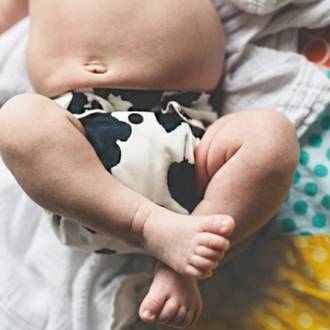Shop
01830
https://www.under5s.co.nz/shop/Hot+Topics+Articles/Health+%26+Wellbeing/Babies/Baby+poo+guide.html
Baby poo guide
|
Baby poo and understanding what’s in babies’ nappies always seems to be a hot topic amongst new parents! It’s hard not to notice how much baby poo varies from nappy change to nappy change. Find out what’s normal and what’s not, the difference between breastfed and formula fed babies’ poo and starting on solids.
|
You might also be interested in ...
Quick guide to kids coughs
Check out our quick guide to kids coughs and coughing - common types of coughs you might come across this winter. Kids coughing is not uncommon at this time of year, but would you be able to recognise what sort of cough it is and how to treat it? Here are some of the more common types of coughs, symptoms and how you can help treat them.
Effects of dummies & thumb sucking on kids teeth
Does your little one suck their thumb or use a dummy? It can be a way to pacify them when they’re young, but did you know that it can cause long term damage to their teeth as they grow nearer to school age?
join usJoin us on social media for all our latest news. |
sign upSign up and receive our latest newsletters. |
|







It’s hard not to notice how much baby poo varies from nappy change to nappy change.
Babies’ developing digestive systems are very sensitive. This means that any change to your baby’s diet affects their poo too.
Find out what’s normal and what’s not, the difference between breastfed and formula fed babies’ poo and starting on solids.
Baby poo guide
What’s normal when it comes to baby poo?
All babies have the same very first poo, a black, tar-like substance called the meconium.
After this passes out of your new baby’s system, here’s what to expect:
Breastfed Babies
Formula Fed Babies
Starting on Solid Food
What’s not normal when it comes to baby poo?
Although baby poo varies a lot, sometimes what’s in your baby’s nappy can be cause for concern and a call to your baby’s healthcare practitioner may be needed:
Changing nappies every few hours might not be the highlight of parenthood, but when you understand the mysteries of baby poo, at least you’ll be prepared for any surprises on the changing table!
More kids articles to enjoy:
- Guide to baby-led weaning
- Dealing with nappy rash
- Managing infant reflux
Image source: Pinterest